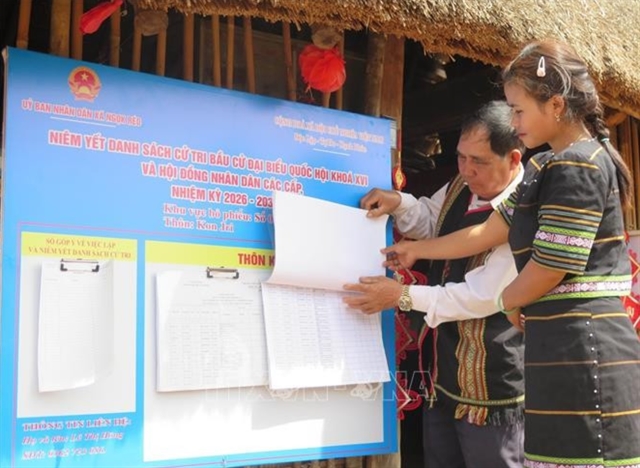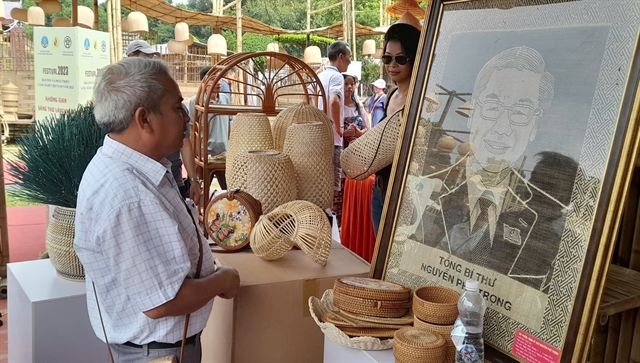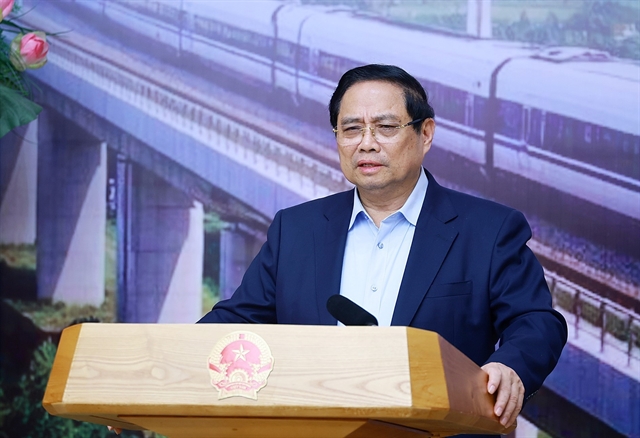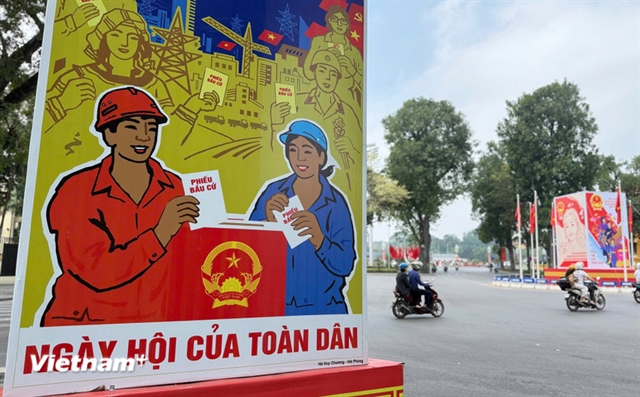 Opinion
Opinion

Đặng Kim Sơn, former director of the Institute of Policy and Strategy for Agricultural and Rural Development talks to Chính phủ (The Government) online newspaper about developing the agricultural sector in the future

|
| Đặng Kim Sơn, former director of the Institute of Policy and Strategy for Agricultural and Rural Development. — Photo chinhphu.vn |
Đặng Kim Sơn, former director of the Institute of Policy and Strategy for Agricultural and Rural Development talks to Chính phủ (The Government) online newspaper about developing the agricultural sector in the future
What is your assessment of agricultural economic development in the past?
From the second half of the 1980s - the period when the Đổi mới (Renovation) process began to now, our country's agricultural sector has made many achievements. The most brilliant achievement is that the agricultural sector not only becomes an important export sector but also contributes to stabilising the macro-economy, creating a foundation for the Vietnamese economy to develop more firmly. Rural areas have changed fundamentally, the gap between rural and urban areas has been narrowed. The agricultural sector and rural economy contribute to social stability, protect natural resources and the environment, mitigate natural disasters and maintain national security.
However, we also have to look directly at the fact that from 2008 to now, although the fifth and sixth Plenum of the Party Central Committee pointed out many shortcomings in agricultural development, they are still to be fixed.
Although the resolutions of the Party Central Committee have set major targets such as building new-style rural areas and restructuring agriculture, there has not been any specific project focusing on promoting the role of farmers. Resolution No 26, issued in 2008, on agriculture-farmer-rural area identified farmers as the subject of the development process, but in reality, the role of farmers has not been promoted as expected.
Typical weaknesses include growth is unsustainable, application of science and technology is poor, human resources have not been developed as expected and the main production force is still small households. Along with that, the non-agricultural economic structure in rural areas is still changing slowly, the environment is still polluted and responding to natural disasters still has many challenges.
What changes should be made to develop a modern agricultural sector in the future?
Recently, people talk about multi-value agriculture, sustainable agriculture, organic agriculture and high-tech agriculture but I think we should focus on promoting the role of farmers first.
It is necessary to change the thinking on the issue of "agriculture-farmer-rural areas" because it is not only a pillar and shield for sustainable development but also an economic driving force to promote the country's advantages.
If agriculture is identified as the main advantage of the country, other entities must rely on that advantage to develop. All issues from materials, machinery, capital, technology, human resources and logistics must be prioritised for agricultural development. So, the agricultural sector can promote its advantageous role for other industries to rely on.
We should put farmers first, consider farmers as the root and the subject of the development process so that they can control the process of mastering both agriculture and rural areas. Farmers must be the ones who manage, decide and provide public services related to agriculture. Next, cooperatives and the Farmers' Associations must be renewed.
Could you talk more specifically about promoting the role of farmers to bring into play the internal resources of the agricultural sector?
We can see that the role of Farmers' Associations or cooperatives is still quite one-way, they are policy advocacy and beneficiary units, but they do not have much decision-making power on the economy. In many countries such as South Korea and Japan, the organisations play a very good role in the community, they even have their own financial institutions such as banks to give members preferential loans for farming. They actively control input materials and importantly, control the consumption of agricultural products.
Additionally, if we want to run the organisations effectively, apart from the development mechanisms and policies, the leading personnel must be elected from the Farmers' Associations at lower level. The head of the organisations will represent the interests of farmers and implement all policies so that farmers can receive maximum economic benefits.
The recent-successful development period has clearly revealed the strengths and limitations of the agricultural sector. We saw that if localities only focus on developing industrial zones or big cities, mass migration can create jobs for labour but not promote urbanisation in terms of society and environment.
In the near future, there will be tens of millions of agricultural labourers becoming non-agricultural labourers and rural residents becoming urban residents. The success and sustainability of the great transformation depends entirely on the process of "makeover" of farmers and rural resources.
Only reforming thinking and reforming institutions can help ensure that the transformation is on the right track and successfully.
What are your thoughts on building ecological agriculture, modern rural areas and civilised farmers?
I think that ecological agriculture is a green agriculture in both quantity and environment, reducing maximum pressure on the environment and shifting from quantity to quality. It also creates a special feature of Vietnamese agricultural products, demonstrating responsibility to consumers and future generations.
To build modern rural areas, first of all, the income of farmers must be close to people in urban areas.
For civilised farmers, farmers must have every opportunity for socio-economic development and actively contribute to the process. Farmers, who want to be civilised, must also have knowledge and a standard of living equivalent to residents of the country and urban areas.
However, I think the most important thing is to clearly define that the role of the agricultural sector is not only a pillar but also a strategic advantage of the country. It is necessary to form an integrated economy, which is capable of creating socio-economic development in the new conditions. Rural residents must become the centre and subject of the development process.
About 60-70 per cent of the total farmers must have access to resources, markets and knowledge to create motivation and development opportunities. Start-ups need to start from farmers themselves and the rural areas must be the solid cultural, environmental, economic and defence foundation of the country. — VNS




